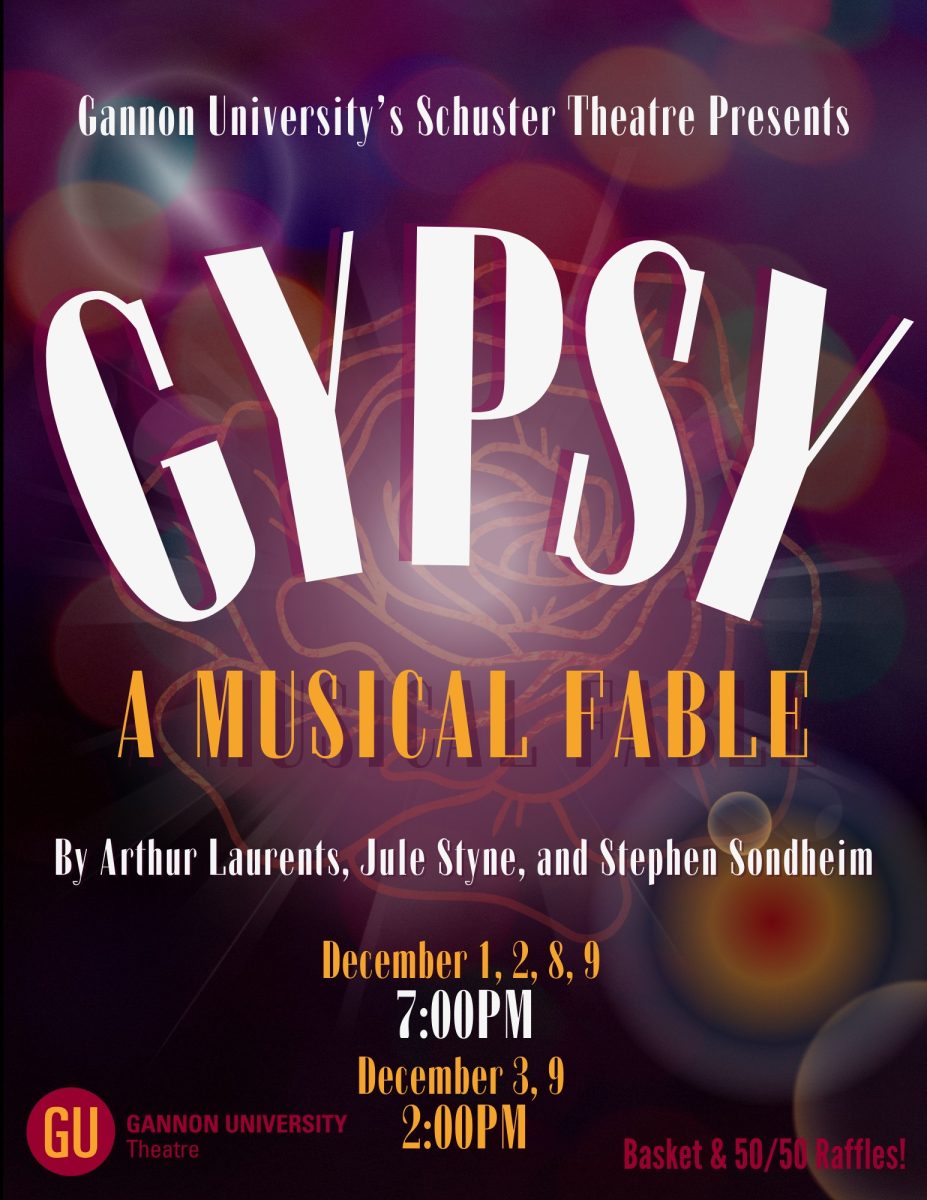The longest-running science fiction show in the history of television, “Doctor Who,” is about to celebrate its 50th anniversary.
The BBC’s “Doctor Who” tells the story of “the Doctor,” a time lord and a member of an alien race, who travels through time and space, usually with a companion, in a spaceship called a TARDIS – Time And Relative Dimension In Space.
His journeys take him everywhere, from faraway places to modern-day London. Wherever and whenever he goes in his TARDIS, the Doctor usually runs into some sort of conflict that can range from aliens trying to exterminate the human race to witch-like creatures trying to bring about the end of the world using a Shakespeare play.
The show began in 1963 and is still on air today. The 50th anniversary special will air at 2:50 p.m. Saturday.
In the show, the Doctor goes through a process called regeneration as a way of cheating death where he changes his looks and his personality, at which point the BBC can hire a new actor and the show can continue.
Eleven actors – William Hartnell, Patrick Troughton, Jon Pertwee, Tom Baker, Peter Davison, Colin Baker, Sylvester McCoy, Paul McGann, Christopher Eccleston, David Tennant and Matt Smith – have played the Doctor. After Christmas, Peter Capaldi will play the role of the Doctor
Karen Schelinski of Erie said she started watching “Doctor Who” in the 1980s, when her family only had access to the broadcast stations on her television. She said she was a fan of science fiction and the only other science fiction show she could get was “Star Trek.”
“I hated ‘Star Trek’ because the women were just brainless ornaments,” Schelinski said. “The Doctor’s female companions actually participated in the action.”
Schelinski said she started watching the show when Tom Baker was playing the fourth regeneration of the Doctor. She said she caught up on the previous episodes and continues to watch it to this day.
In 1989, after the seventh regeneration of the Doctor, the BBC did not renew “Doctor Who” for more episodes. A movie was released with the eighth regeneration of the Doctor in 1996, and the series returned in 2005.
Schelinksi said she was extremely disappointed when the series stopped in 1989.
“I thought it was the end of an era,” Schelinski said.
Schelinksi said she was particularly disappointed because she spent a semester studying drama in England – where the show originated – while the show was off the air and she had been hoping to see new episodes.
Someone who had a similar mindset as Schelinksi was AJ Miceli, chairman of the Communication Arts program at Gannon University.
Miceli held the position of general manager at WETG-TV FOX – now WFXP – for six years. Miceli said “Doctor Who” has several appeals to television viewers. For those who like science fiction shows, “Doctor Who” not only follows the genre, but the show is well-written.
“The work of the writers of the show translates well to TV, and it has good literary value,” Miceli said.
Miceli said, with regard to the science fiction element, not only does the Doctor travel in time, but through space too. His allowance to skip through the universe also adds a unique aspect to the show, so that it isn’t just historical.
The multi-dimensional travel allows the Doctor and the audience to go anywhere in the universe, which allows for a variety of settings as well as alien characters, Miceli said.
Miceli said another good asset to the show is its witty humor, which is similar to that of “Monty Python’s Flying Circus,” which aired with the show starting in the early 1970s.
Miceli said another appeal of the show is that the Doctor always travels with a companion.
“All heroes have a sidekick,” Miceli said. “Especially with the new episodes, you can feel the chemistry between the Doctor and his companions.”
Miceli said the newer companions become more of a genuine help to the Doctor and are almost his equals.
Miceli said one of the biggest reasons the show has been able to stay around for so long is because of its “caretakers.”
“The writers and producers keep the show alive,” Miceli said. “They carry on the traditional values of the show and make it a good science fiction show.”
Since the show’s return in 2005, “Doctor Who” has opened up to a younger crowd.
Sarah Sgro, a senior French and international business major, said she started watching the show in the spring of 2011 when one of her friends in her acting class recommended it and after she read about it online. Sgro said she “binge watched” the show, completing five seasons in two months while in school and work.
“I’m pretty sure there was one day where I ordered Chinese food, stayed in my bed for eight hours and just watched ‘Doctor Who,’” Sgro said. “I think my roommate was a little concerned.”
Sgro said she persuaded all of her friends to start watching “Doctor Who” over the next four years.
One of those friends is Mary Stephens, a sophomore occupational therapy major, who began watching the show in May.
Stephens said when she saw the first episode, she was really confused as to why all of her friends were obsessed with this show.
“I texted one of my friends basically asking ‘What did I just watch?’ and she told me to just give it a few more episodes,” Stephens said. “After two or three more episodes, I was hooked.”
Stephens said that since then, she has gotten her roommate and her friend from her hometown – Elmira, N.Y. – to watch the show.
Schelinski said she felt the show came back stronger than ever while retaining most of its originality.
“It’s cool because I still see remnants of the very first William Hartnell in the most current episodes,” Schelinski said.
Both Sgro and Stephens said one of their favorite episodes of “Doctor Who” was “Vincent and the Doctor,” where the Doctor goes back in time to save Vincent Van Gogh from a creature he finds in one of his paintings.
In the episode, the audience is shown that during Van Gogh’s time, everyone thought he was a lousy painter and a town drunk. Van Gogh suffers from depression and what seems to be anxiety and has a breakdown while the Doctor and his companion are trying to help him.
Sgro said she loved the episode so much, she actually made an effort to go to the setting of the episode while she was studying abroad in France.
Sgro said not only does she love the work of Van Gogh, but she also loves the message the episode has.
“It shows that life is always worth something, even if you’re living with a mental illness,” Sgro said. “It really shows what it means to be creative and to be human and that we all should be appreciated.”
Stephens said the episode made her cry.
Miceli said the show can be quite heartfelt as it plays on fears, joys and hopes. It is also ultimately a reasonable moral program where good always triumphs over evil.
Stephens said one of her favorite parts about the show as a whole is the character River Song because she’s a mystery and she’s the only character who has a “one-up” on the Doctor while the other companions just follow him around.
River Song also travels in time and space, but she travels opposite of the Doctor. So he meets her after she already knows him and she meets him after he already knows her.
Miceli said River Song’s character added a new twist to the plotline of the show.
Sgro said she’s excited for the 50th anniversary special because so many characters are coming back to the show and because the last episode was left on a cliff-hanger.
“It better be awesome,” Sgro said.
Stephens said she thinks she understands what’s going to happen, but doesn’t know for sure and doesn’t want to spoil anything.
“All I know is it better be awesome,” Stephens said.
Both Sgro and Stephens said they would still watch the show if it were on the air 50 years from now.
Schelinski said she hopes “Doctor Who” never ends. When she first started watching, very few Americans had ever heard of the show. Now because of BBC America, it’s much more popular and the fans are extremely loyal.
“I don’t see the show doing another disappearing act like it did in 1989,” Schelinski said. “The fans mourned then and they would mourn again. It’s timeless and will be on the air for a long time to come.”
Miceli said he could see the show running for at least another two or three years.
“As long as there are these caretakers who stay true to the show while upgrading the program to be reasonably modern,” he said, “I don’t see why it can’t continue.”
KHADIJA DJELLOULI





